What are my thoughts on China's mass surveillance?
Yes, China has loads of cameras. I saw them everywhere I went. As a result, crime is extremely low, so now what?
I recently spent nearly a month in China.
I visited nine cities, from Shanghai to Xinjiang, and even travelled to the most isolated village in China, which has a population of around 100. (We drove for about three hours through the desert one way, and three hours back on the same day.)
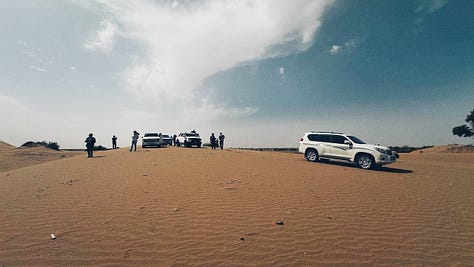
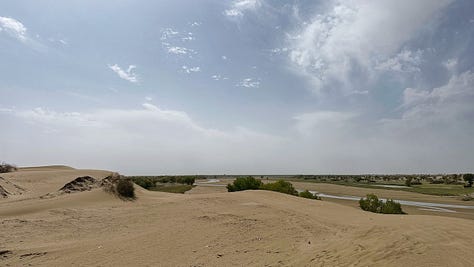
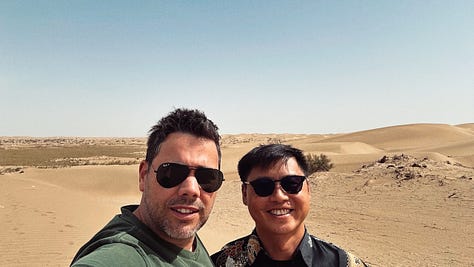
My point is that I’ve seen a lot of China, from the technologically advanced to the most unbelievably remote, and I’ve spoken to a lot of Chinese people along the way.
As always, the usual suspects appear in the comments with cynical nonsense like “Yes, but you only saw what they allowed you to see” and “As a tourist, your experience is meaningless” and so on.
I don’t pay attention to such comments, since it’s obvious that visiting a place is superior to not visiting it. On top of that, we went wherever we wanted because, well, China isn’t North Korea.
Cameras everywhere
Yes, there are cameras everywhere in China.
I have never seen so many cameras.
It didn’t matter where I was; there were cameras.
Shanghai has, I believe, around 15 million cameras, which is an average of one camera for every two people. I didn’t like it, but the conundrum is that it didn’t bother me, and the reason is simple: I felt safe. We left stuff lying around and nothing was stolen.
Meanwhile, other cities—like London—have loads of cameras too, but they aren’t safe, meaning that the mass surveillance becomes very apparent very quickly.
I’ll say this again: mass surveillance doesn’t make me comfortable.
Thankfully, I live in South Africa where it isn’t a thing. I mean, sure, there are some cameras here and there, but by and large, most are broken and there is little enforcement when they do work.
I’ve often said I prefer the African approach, where the government’s sheer ineptitude ensures nothing functions, creating a sense of freedom amid the chaos.
But it comes at a cost.
Safety.
The safety of my family is paramount.
Living in South Africa is not safe, and this is something foreigners simply don’t understand. They don’t know what it’s like to have murders and rapes daily. They don’t know what it’s like to have to drive through red traffic lights because of the fear of being hijacked. In fact, they don’t know what it’s like to be hijacked at gunpoint. They don’t know what it’s like to hear gunshots at night. They don’t know what it’s like to own a firearm for self-defence, or to have private security on speed dial.
The following screenshot is from the WhatsApp group of our estate (gated community), just as I arrived in China.
There was a moment, while in China, when I asked myself whether I’d be all right with more cameras if it meant less crime.
I still ask myself that.
But I reckon my default setting is what I’m used to, which isn’t millions of cameras but rather relying on community networks for safety.
It’s complicated
How many of Shanghai’s 15 million cameras actually work?
Is there a correlation between more surveillance and less crime?
Have Chinese people just inherently become more trusting of one another (due to ethnic homogeneity)?
I don’t know the answers, but I can tell you I saw plenty of jaywalking in China, along with motorcyclists without helmets—even though both are illegal.
Even I jaywalked many times.
My friend Carl, with whom I travelled, left his phone in a cafeteria and found it in exactly the same spot nearly two hours later. Was that because of cameras? I don’t know.
Facial recognition
Yes, facial recognition exists in China, but nowhere near the levels that social media hysteria suggests.
This sort of anti-China propaganda is everywhere right now, forcing me to conclude it’s not organic—it’s orchestrated by Western intelligence.
I mean, most of those who are part of this current wave of Sinophobia have never been to China. They’re merely parroting what they’ve been fed.
Here’s a message I received from a friend who has lived in Shanghai for many years:
Such propaganda targets people in countries where such technology is not widely used outside of government. Facial recognition systems use local databases and replace keys. To centralize this would require replacing everything.
Facial recognition systems used in gated communities are usually only for people living there and staff entering on foot. This would not be practical for visitors or people in cars. In our gated community for example it’s only used for service personnel. Owners and family members are recognized by the gate guards and let in manually. (We have never registered our faces.)
Privately such systems are used all over China. We use them both at home and in our office.
At home only for the front door however. For the back we still use keys.
Sadly, few will accept what he said. Instead, they’ll dismiss it and cling to their own narrative—they don’t want to be wrong. They insist on painting China as a dystopian hellhole, since it’s simpler to project their fears and paranoia than confront reality.
Plus, if you own a cellphone, you likely use facial recognition. It is neither a good nor bad thing. It’s merely a tool. For example, what is the difference between accessing my banking app using a PIN code and using my face? There are pros and cons both ways.
My point is that, in China, mass surveillance is pretty blatant and in your face.
However…
Mass surveillance exists outside of China, and this is the brilliance of the anti-China psyop: it keeps people distracted.
The following is from a post on X:
Here is the CEO & co-founder of Palantir, Alex Karp at WEF in 2023 saying “Our primary goal is to set a global standard for the world for behavior.”
This is ALARMING for several reasons… Trump just made a deal with him and allowed his company to weave intricately into the fabric of the whole Federal Government, creating a merged massive database of ALL of our personal, sensitive data for the first time in history.
This is significant because yes, the government has always had our data by way of the NSA, but it’s never been merged together across all agencies with the help of a third party corporation, like Palantir, which acts more like a intel agency than a company. They did this using a backdoor through DOGE, and Elon Musk facilitated the process. That was his true role. Palantir and Elon go way back & recently xAI has partnered with Palantir along with Blackrock.
In fact, Palantir is quite LITERALLY funded by the CIA through In-Q-Tel, which is the CIA’s venture capital arm. In a nutshell, Trump just employed a proxy of the CIA to create the LARGEST surveillance police state in American history. Did you know that Alex Karp also bragged about stopping the “rise of the far right” in Europe? WHY would Trump, who is supposed to be a “right wing populist” allow such intentional subversion by a self-professed “progressive” like Alex Karp to infiltrate our government?
They want to set a standard for behavior, because that is the standard upon which the coming Social Credit system will be measured & that will tie directly into our data profile (financial, medical, personal) including our usage of “carbon”, which will be TAXED. EVERYTHING we do will be monitored by smart devices and that information will factor into our Social Credit score, which will dictate the privileges we are allowed to have, or not. That is the NIGHTMARE vision that these PSYCHOPATHS have for our future & it is being ENABLED. Through the Internet of Bodies (IoB), they will even know our thoughts, and any dissent or opposition will be swiftly punished.
They are even able to create “pre-crime” (thought crime) scenarios to set us up for crimes we never committed using advanced AI. Sound familiar? This all plays into the DEPOPULATION agenda as well, because WE are seen as the “carbon”. WE ARE THE CARBON THEY WANT TO REDUCE.
Imagine if the movies Terminator and Minority Report became a reality, and that is what we are up against. If you can’t already SEE IT, and are still having a hard time understanding…
Palantir is LITERALLY THE DEEPEST PART of the “deep state” & Trump is rolling out the red carpet for them, to usher in what will certainly be the Beast system. A cashless society in which you will be tracked and monitored every second of every day, and your “behavior” will dictate how you get to live in society.
This is absolutely “The Great Reset” & “6uild 6ack 6etter” REPACKAGED MAGA style.
THE BIGGEST RUG PULL IN HISTORY.
As my friend Nick Hudson has said many times, people struggle with complex systems and, instead, prefer simple binaries that keep them intellectually paralysed and mentally enslaved.
Before pointing fingers at China, Westerners should hold up a mirror.
And why do you look at the splinter in your brother’s eye, but do not notice the plank in your own eye?
—Matthew 7:3-5 (TS2009)
So, as I said earlier, while I prefer less surveillance—and, living in Africa, I do indeed encounter less surveillance—I would argue that, based on my personal experience, China’s blatantly obvious mass surveillance is possibly “more desirable” than the subsversive, sinister, Palantir-kind that’s rolling out elsewhere.
It’s a difficult pill to swallow.


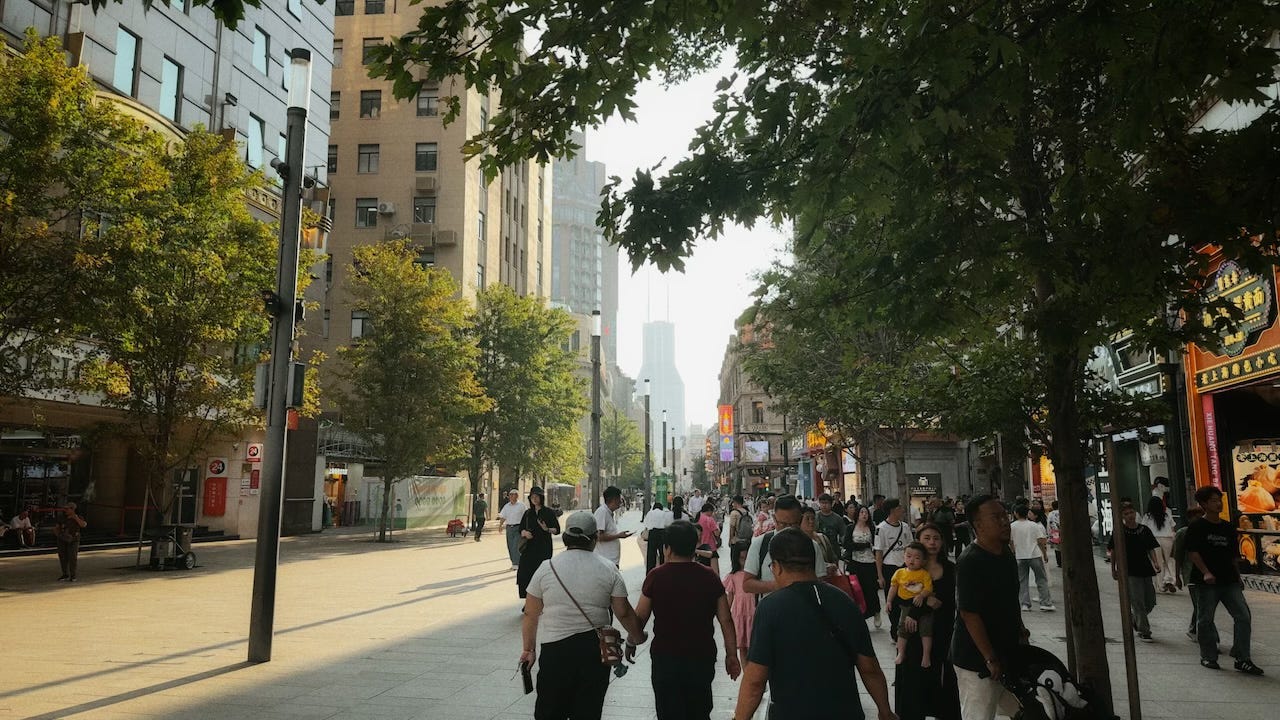
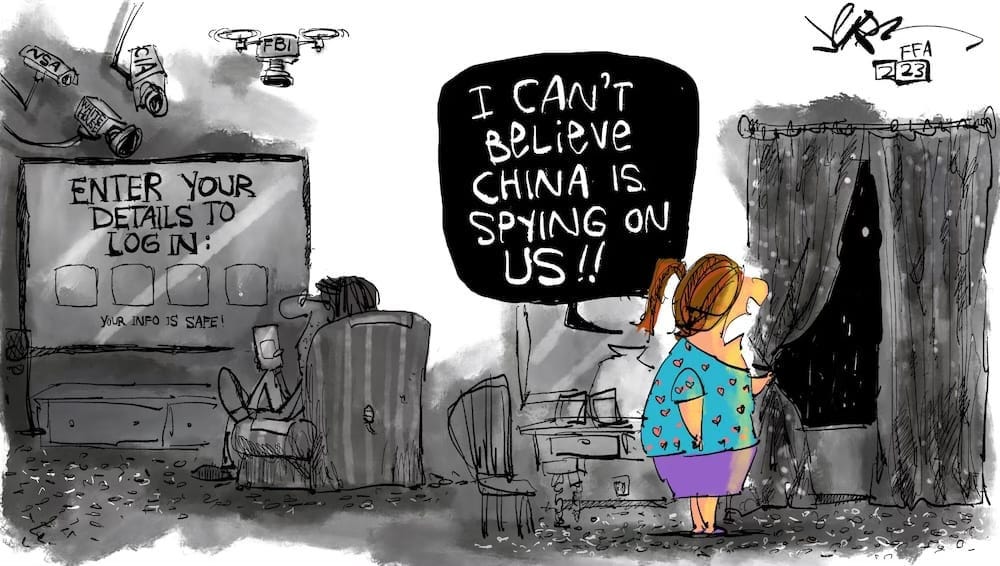
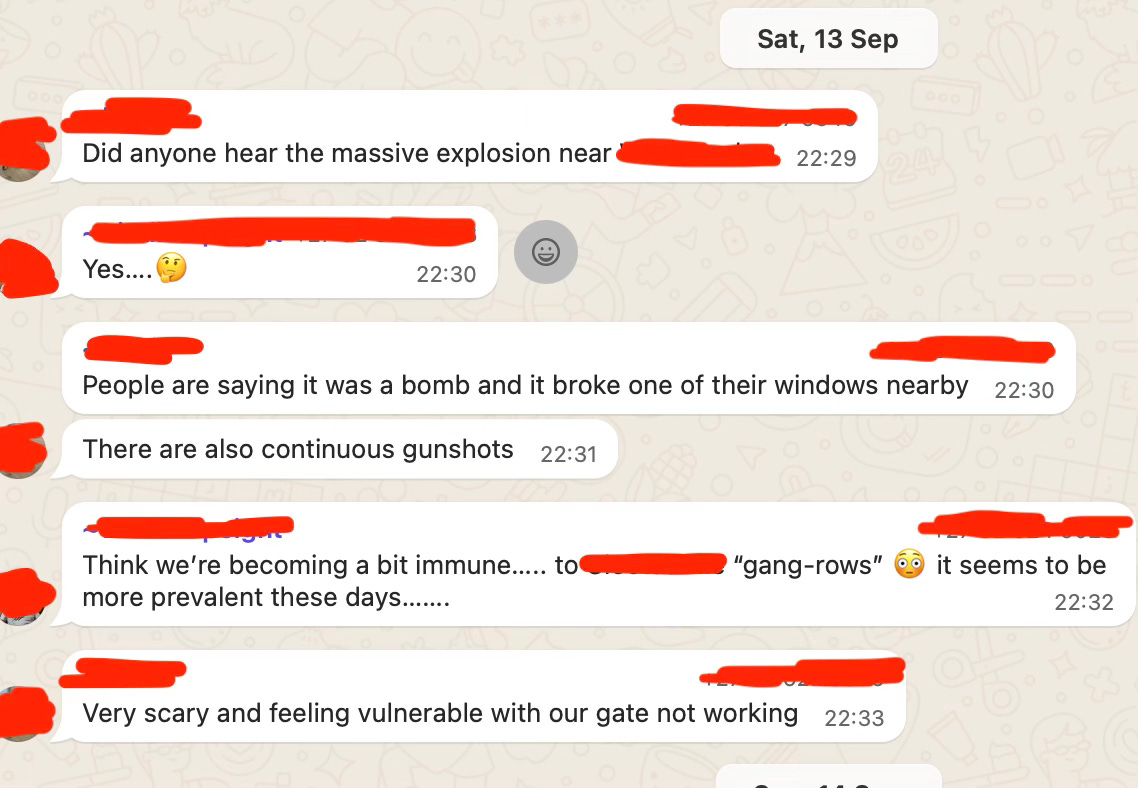

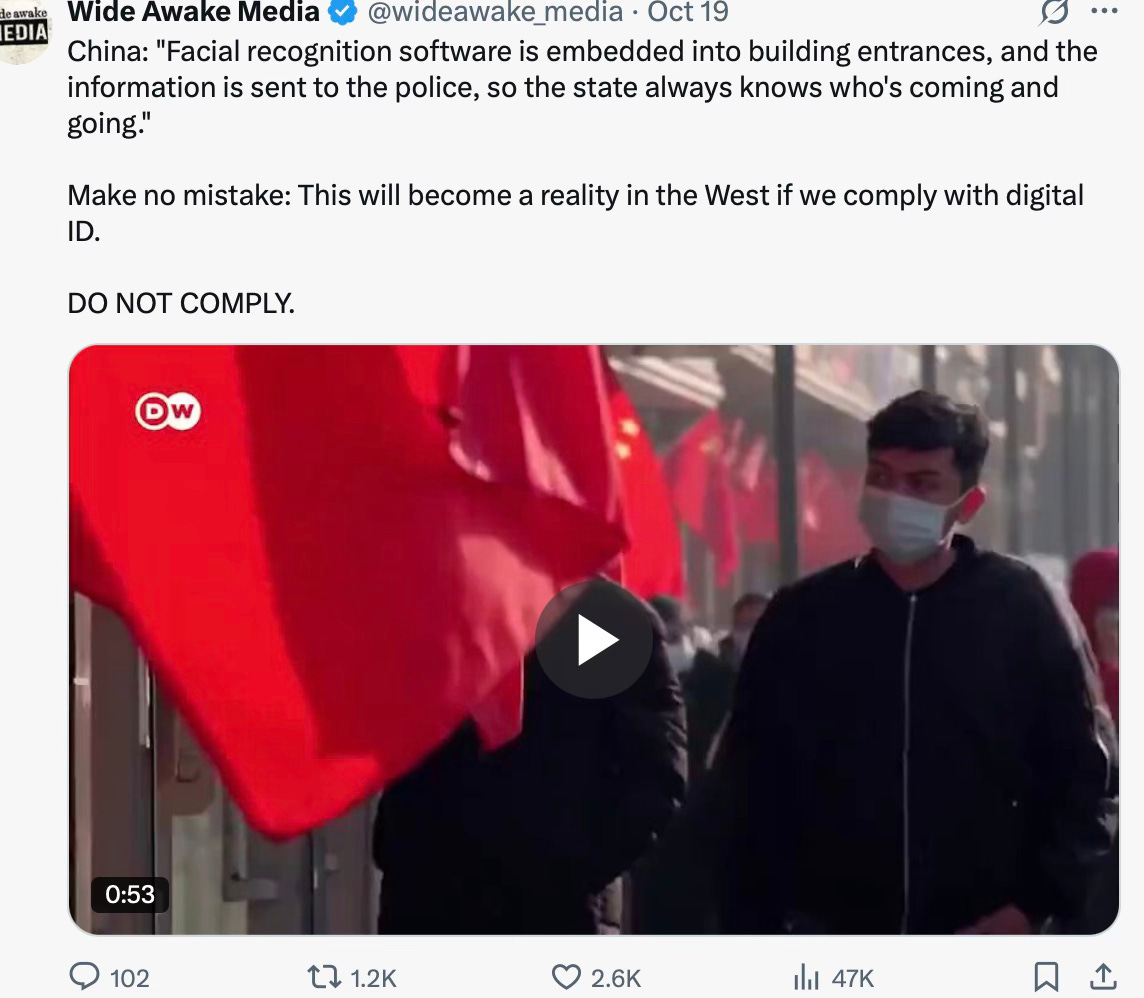
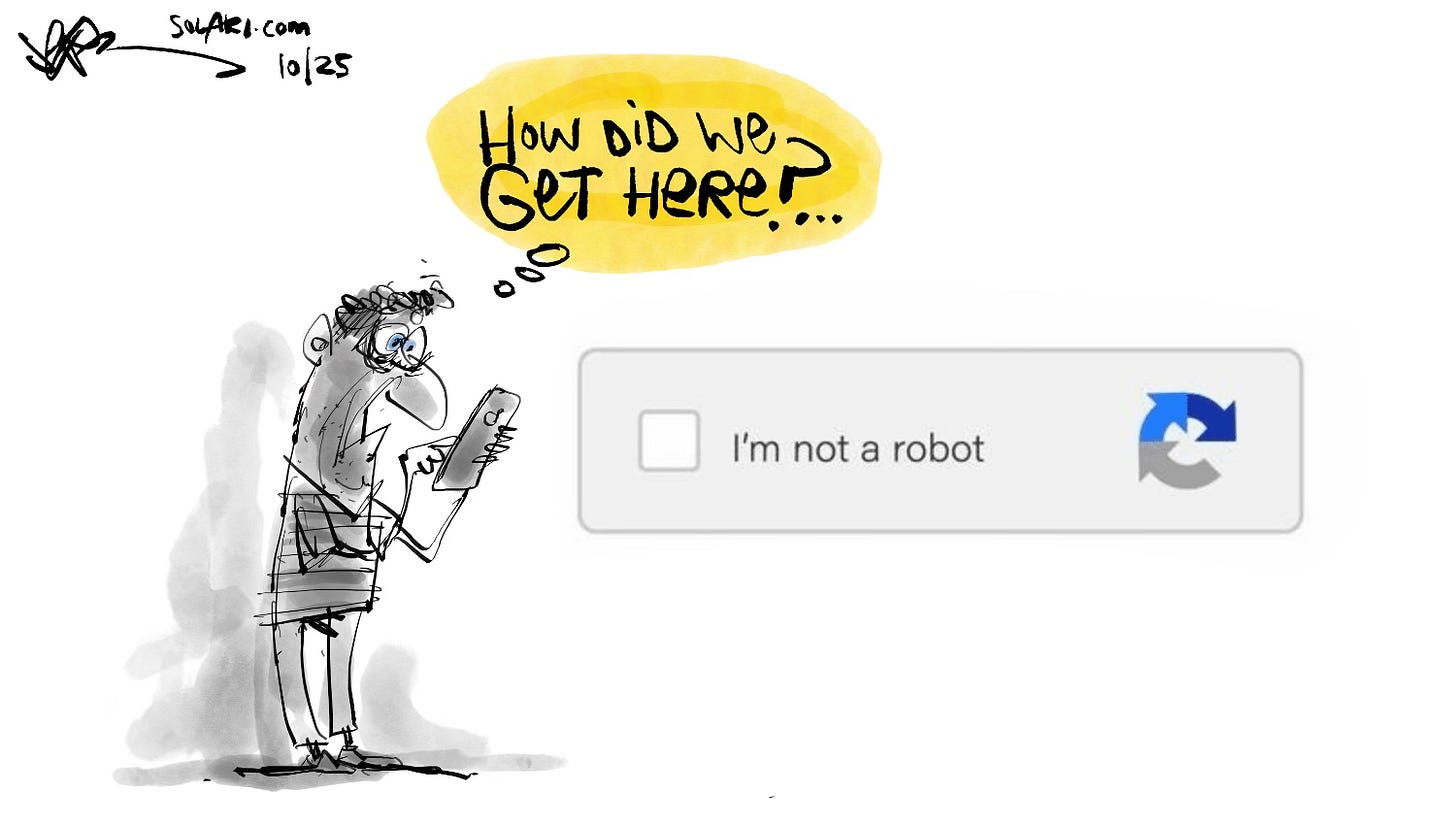
‘China has loads of cameras…as a result crime is extremely low.’ Eh? London has as many surveillance cameras (if not more) than any Chinese city and crime rates are high.
“Every country gets the government it deserves” Count Joseph de Maistre